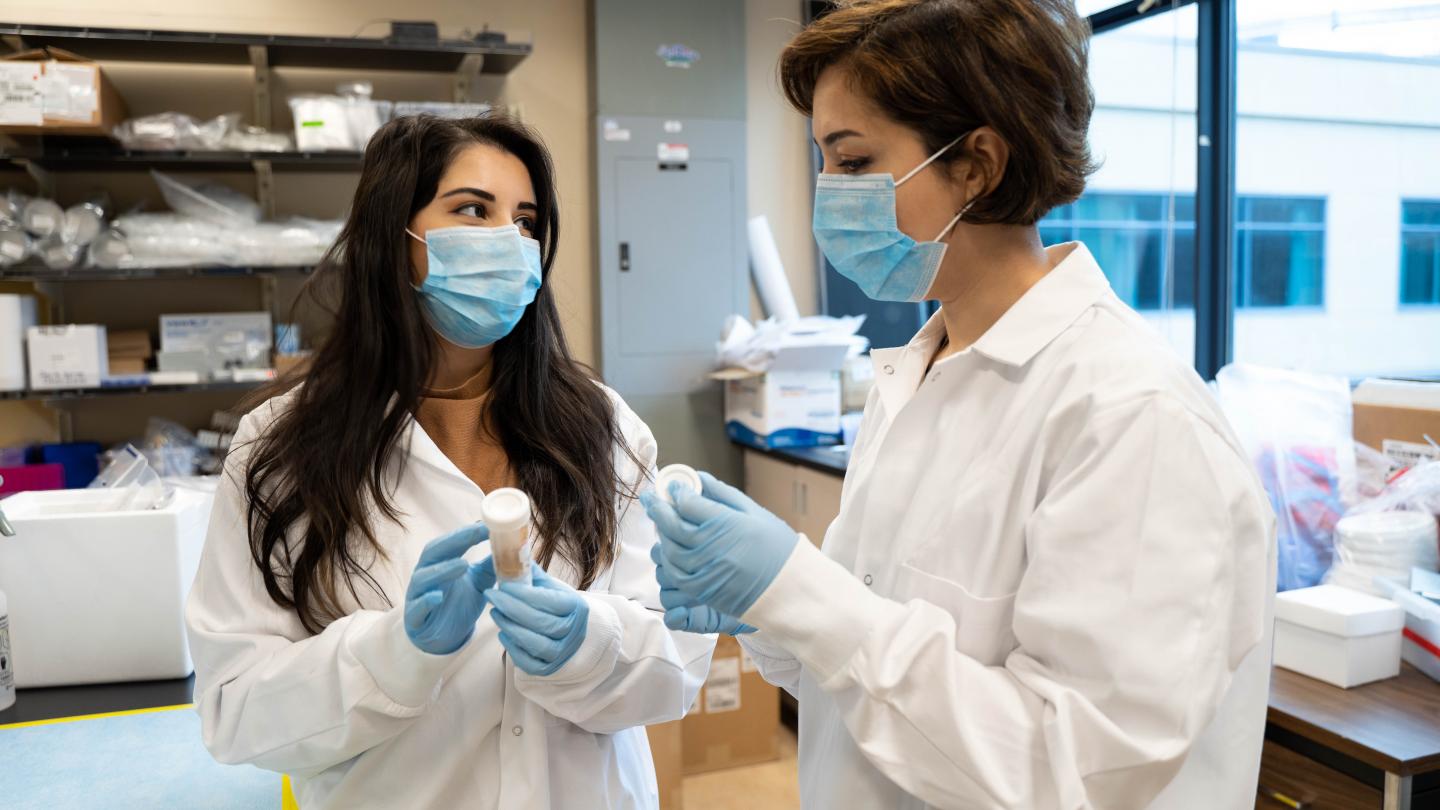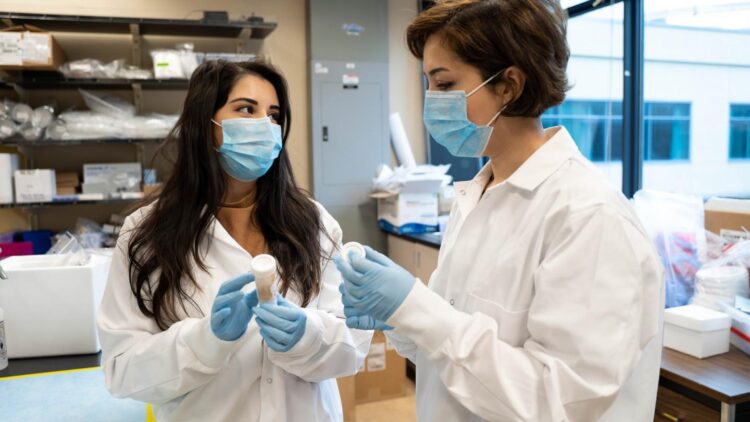Genetic analysis helps ensure successful fecal microbiota transplants

Credit: UBC Okanagan
Could number two be number one when it comes to combating recurrent Clostridium difficile (CDI) infections?
Using genetic material analysis and machine learning, UBC researchers have pinpointed several key factors to ensure successful fecal microbiota transplants (FMT), which have proven successful in treating bacterial infections in the gut including illnesses like C. difficile, Crohn’s Disease, Colitis and even obesity, explains lead author Negin Kazemian.
“This therapy is still in its infancy, but studies like ours are helping identify key contributors to its overall success,” says Kazemian, a graduate student at UBC Okanagan’s School of Engineering.
Kazemian and her supervisor, Assistant Professor Sepideh Pakpour, are investigating the internal dynamics of both donors and recipients to set out a formula for the effectiveness of the therapy.
C. difficile is one of the most frequently identified health care-associated infection in North America, she adds. Once a patient gets it, the illness often recurs, making a significant negative impact on a patient’s gut microorganisms.
Kazemian explains that severely damaged gut ecosystems, like someone who has had C. difficile, are not self-renewing. Therefore, FMT can help by restoring damaged systems through the recreation of the original ecosystem, or the construction of an entirely new and alternative ecosystem.
“In our study, we showed that the success of gut ecological recovery through FMT is dependent on several factors, including the donor gut microbiome–the presence of specific bacteria–as well as the recipient’s pre-FMT gut community structures and the absence of specific bacteria and fungi.”
Some previous studies have pointed to the possibility of “super” donors, but these new findings indicate the relationship between donors and recipients is much more complex. Pakpour says the notion of the super-donor is oversimplified due to the observed short-term fluctuations. A recipient’s microbiota may be just as important to consider when predicting treatment outcomes, especially in unbalanced conditions such as ulcerative colitis.
“Take, for example, blood transplants where we have a strong understanding of the four main blood groups or types, and how they interact with one another,” says Pakpour. “With fecal transplants the research up to this point has not been as clear in what constitutes a good match or compatibility.”
Working with data from the University of Alberta Hospital, Kazemian and Pakpour analyzed the gut composition and DNA from samples extracted before and after FMT.
According to Kazemian, their findings indicate that there isn’t a “one stool fits all” approach to ensure transplant success.
“The data illustrates that the unique microorganisms in everyone’s bodies respond differently over time, and this has profound implications on whether these transplants work well or not.”
The researchers suggest that preparing donors and patients’ gut ecosystems prior to transplant, maybe by using metabolites, would potentially sync their microbiota leading the way to a higher probability of transplant success.
###
The new research is published in Nature Research’s Scientific Report.
Media Contact
Wellborn, Patty
[email protected]
Original Source
https:/
Related Journal Article
http://dx.





